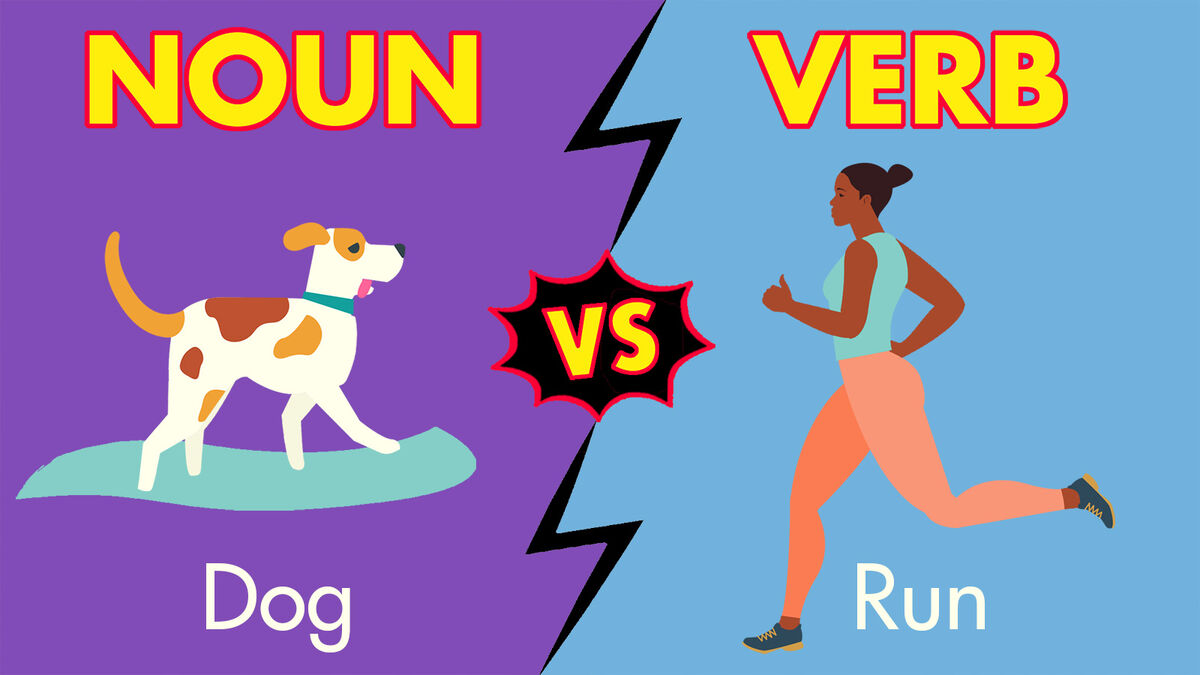
Nouns and verbs are two very important parts of speech. But what is the difference? Learn to easily identify a noun vs. a verb by getting a clear definition. View different types of nouns and verbs used in examples too. Soon, you’ll gain a clear understanding of whether a word is a noun or a verb.
What Is a Noun?
You couldn’t have a sentence without nouns. They are one of the basic building blocks of the English language. A noun is defined as a person, place, thing or idea. Examples include child, house, door and love. The list of nouns can go on and on, and they are singular, plural and sometimes, both! If you don’t believe it, ask the deer.
Can you find the nouns in the sentence below?
- The girl and boy held hands to cross the road on their way to school.
In this sentence, girl, boy, hands, road, way and school are all nouns. Nouns are generally the people, places, things or ideas that are performing the action of the sentence (i.e., subjects) or are receiving the action of the sentence (i.e., objects).
Nouns, Nouns and More Nouns!
When it comes to nouns, there isn’t just one type. There’s a lot of them. Explore what they are and view a few examples of each.
- Common noun - Common things like dog, ball, aunt, state
- Proper noun - Specific things like John, Statue of Liberty, White House
- Concrete noun - Material or tangible things like apple, apartment, brother, bucket
- Abstract noun - Intangible things beyond the five senses like love, taste, loyalty, compassion
- Collective noun - Groups of countable things like dozen, array, board, choir, crowd
- Countable nouns - Things you can count like dogs, children, oranges, bugs
- Uncountable nouns - Things you can’t count like wine, water, knowledge, luggage
Definition of a Verb
Verbs are just as important as nouns. You couldn’t have sentences without them either. By definition, verbs are going to indicate or describe the action happening in a sentence. They tell you what a noun does.
Can you find the verbs in the sentence?
- When I raked my yard, I hit a snake.
This sentence uses the verbs raked and hit. These are the “action” words in the sentence. Verbs can also be non-action words, like those used to express being.
All the Verbs
Nouns aren’t the only words that can be split into subgroups. Verbs can too. Check out the different subgroups of verbs.
- Action verbs - Show action, like “I ride my bike.”
- Linking verbs - Connect a subject with information about it, like “The sky looked blue.”
- Helping verbs - Help a main verb, like “I am making lunch for us.”
- Stative verbs - Express a state, like “I appreciate my brother.”
- Transitive verbs - Express action done to a direct object, like “Tommy sent a book to Maryland.”
- Intransitive verbs - Express action without a direct object, like “I arrived.”
Noun and Verb Sentence Examples
Now that you have a clear idea of what a verb and a noun are, explore how they work together in a sentence through examples. Notice the bold nouns and the italicized verbs.
- Sheila went to the house to grab a rake.
- The boy played the piano in the foyer.
- John visited the White House with his friends.
- Jill and Tommy held hands at the movies.
- Dan and Timmy loved their new toys.
- Terry adores her best friend.
- Connor broke the glass in his car and must replace the windshield.
- The knowledge gained from reading is invaluable.
Is It a Verb or a Noun?
Just when you think that you have a handle on nouns and verbs, it’s time to throw you a curveball. Some nouns can be verbs. Actually, several nouns can also be verbs, spelled exactly the same way. So, how do you tell? When you say the sentence, listen to where the stress is placed on the syllable.
- Noun: An object is in front of the door.
Verb: I object to that way of thinking.
When “object” is used as a noun, the stress is placed on the first syllable: OBject. When it is used as a verb, stress is placed on the second syllable: obJECT.
See how that works! Check out a few more examples to really get the hang of it.
- Noun: My permit is in the glove compartment. (PERmit)
Verb: I don’t permit you to go. (perMIT) - Noun: My conduct is polite and professional. (CONduct)
Verb: I conduct my work professionally. (conDUCT) - Noun: He’s a rebel without a cause. (REbel)
Verb: He will rebel against any authority figure. (reBEL) - Noun: English is my favorite subject in school. (SUBject)
Verb: The teacher is going to subject us to more exams. (subJECT) - Noun: Unemployment saw an increase of 10 percent. (INcrease)
Verb: Unemployment is going to increase by 10 percent. (inCREASE)
Comparing Nouns and Verbs
Nouns and verbs might be different, but they are both necessary. Knowing the differences between the two can make you a stronger English speaker and really improve your sentence structure. Now, it is time to master possessive pronouns. The challenge is yours to conquer!